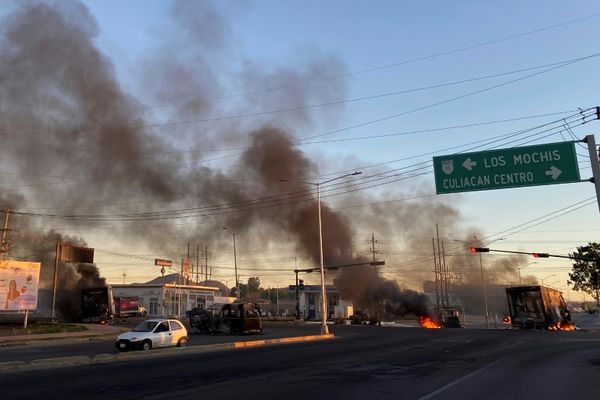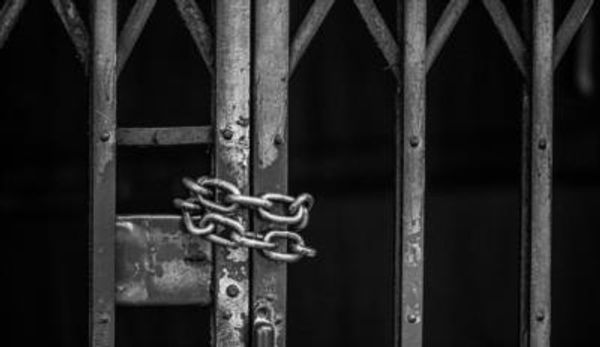
MILLIONS of Muslims across the globe have begun celebrating Eid al-Adha, one of the biggest holidays of the Islamic calendar.
Known as the “Feast of Sacrifice”, the revered observance, which started yesterday, coincides with the final rites of the annual hajj in Saudi Arabia.
Health Secretary Humza Yousaf was among those to send messages marking the holiday.
Yousaf tweeted: “Eid Mubarak to all Muslims celebrating here in Scotland, across the UK and around the world. Hope you have a wonderful time with family, friends and community. I am in charge of the tandoori leg of lamb, so pray for my family!”
Retweeting his message, First Minister Nicola Sturgeon added: “#EidMubarak to everyone celebrating in Scotland and across the world.”
Eid al-Adha is a joyous occasion, for which food is a hallmark. Much of Asia, including Indonesia, India and Pakistan, will observe the holiday today.
But as Russia’s war in Ukraine sends food prices soaring and causes widespread hardship across the Middle East, many say they cannot afford the livestock for the ritual sacrifice.
Desperation over the cost of living crisis has undercut the typically booming holiday trade in goats, cows and sheep.
“Everyone wants to sacrifice an animal in the name of Allah, but they are not able to do so because they’re poor,” said Mohammad Nadir from a cattle market in Mazar-e-Sharif, northern Afghanistan.
Eid al-Adha commemorates the Quran’s tale of Ibrahim’s willingness to sacrifice Ismail as an act of obedience to God. Before he could carry out the sacrifice, God provided a ram as an offering. In the Christian and Jewish telling, Abraham is ordered to kill another son, Isaac.
Many Muslims celebrate the four-day feast by ritually slaughtering livestock and distributing the meat among family, friends and the poor.
At Al-Shati refugee camp in west Gaza City yesterday, excited children lined up for the innards and trotters – a cherished offering for those otherwise unable to afford meat.
In Afghanistan, there is usually a shopping rush for prime animals ahead of the holiday.
But this year, surging global inflation and economic devastation after the swift Taliban takeover of the country in the aftermath of the chaotic withdrawal of Nato forces, have put that beyond the reach of many.
“Last year on this day I sold 40 to 50 cattle,” said Mohammad Qassim, an Afghan cattle vendor. “This year, I have only managed to sell two.”
Wheat and meat prices have multiplied, and hunger has spread, as Russia’s war on Ukraine disrupts agriculture and constrains energy supply.
The sky-high costs of animal feed and fertiliser have forced livestock salesmen to hike prices.
From Tripoli in war-torn Libya, families are looking forward to the holiday after the past two years of the pandemic and more than a decade of violent chaos.
But the price tags – up to £1750 per sheep – had buyers pacing around the dusty market, apprehensive about the major purchase.
“Honestly, the prices are crazy,” said Sabri al-Hadi.
At a livestock market in the blockaded Gaza Strip, there were hardly any buyers.
Vendors said the price of sheep feed has jumped four-fold in recent weeks.
“Our life is full of loss,” lamented Abu Mustafa, a sheep salesman in Deir al-Balah in central Gaza, which has long suffered from widespread unemployment and poverty.
On the streets of Palestine’s Ramallah in the West Bank, families were cutting back on other components of the feast – typically a bounty of dishes.
“On days like these, there was demand for fruits, sweets and for nuts as well, but as you can see... no-one is standing to buy now,” complained fruit vendor Baligh Hamdi.
But lavish feast or not, there were community prayers – a welcome sight in much of the world after years of coronavirus-related restrictions.
The faithful crowded into mosques across the Middle East and North Africa yesterday – from Kenya to Egypt, throngs of worshippers prayed shoulder to shoulder, feet to feet.
It comes after one million Muslims from around the world flocked to the holy city of Mecca, the largest pilgrimage since the start of the pandemic.







